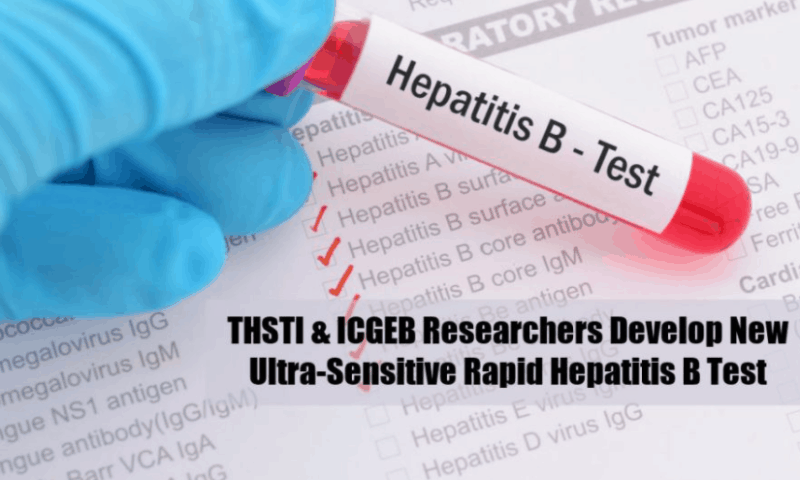Ultra-sensitive rapid Hepatitis B test developed by scientists
When a patient is admitted to a hospital, certain diagnostic tests are conducted routinely. One of them is the Hepatitis B test, which detects the ‘HBsAg’ or Hepatitis B virus surface antigen in the blood plasma. Both acute and chronic cases of Hepatitis B Viral diseases are diagnosed this way.
Normally, there are 2 types of HBV tests – RDTs (Rapid Diagnostic Tests) and EIAs (Enzyme Immunoassays). While EIAs are extremely sensitive but expensive, RDTs are less sensitive and more affordable, resulting in laboratories with poor resources using the latter even for blood sample screening before transfusion. The RDTs are also easy to use, enabling untrained individuals to work with them. EIAs, on the other hand, demand skill. This poses a danger as the HBV infection may go undetected in low economy countries, which has a greater occurrence of the disease and necessity for its early diagnosis.
This gap insensitivity has been bridged by researchers from DBT-ICGEB (DBT-International Centre For Genetic Engineering And Biotechnology), DBT-THSTI (DBT-Translational Health Science and Technology Institute), and the Finland’s University of Turku. They have developed an ultra-sensitive rapid Hepatitis B diagnostic test.
Ultra-sensitive Hepatitis B test is highly efficient
The new tests have 95.4% sensitivity in detecting positive samples for HBsAg. This is a step up from conventional RDTs that have 87.7% sensitivity. Another advantage of the new test is that it doesn’t demand skilled personnel due to ease of use.
The scientists’ goal is to develop it into a point-of-care kit for the bedside to test newly drawn blood samples in clinical settings. They also seek to make it a battery-operated kit. DBT-BIRAC (DBT-Biotechnology Industry Research Assistance Council) and UK’s Wellcome Trust offered their support to the study. The journal Analytical and Bioanalytical Chemistry published a report of it.
The team of scientists who developed the ultra-sensitive Heptitis B test consisted of Sheikh M. Talha, Iida Martiskainen, Teppo Salminen, Souvick Chattopadhyay, Dinesh Kumar, Karoliina Vuorenpää, Kim Pettersson, Etvi Juntunen, Gaurav Batra, Navin Khanna, and Tytti Vuorinen.
Filling gaps in diagnosis
As a significant health issue in countries with low and middle income, Hepatitis B can be transmitted through body fluids (mainly blood) that are infected and perinatally from mother to her new-born. The early infection stage of this disease is usually asymptomatic. A tiny proportion of acute symptomatic infection-bearing individuals also experience acute liver failure. The chronic liver disease developed in some individuals may turn fatal with hepatocellular carcinoma and cirrhosis.
Detection of asymptomatic chronic infection needs to be done as early as possible. But this is hardly possible in low-economy countries where there is insufficient sensitivity in tests to screen blood donors. The overall percentage of patients who have chronic HBV infection is just 10.5%. The new ultra-sensitive rapid Hepatitis B test could solve this problem.

